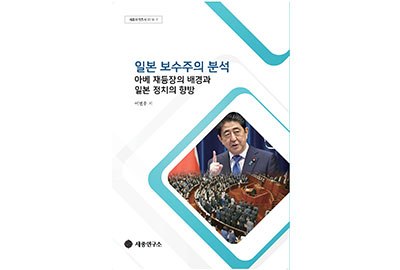This book addresses three detailed questions regarding the topic of in what factors and ways did Shinzo Abe re-emerge as the Prime Minister, winning at the general elections and Liberal Democratic Party of Japan’s (LDP) elections: Why did the LDP choose Abe once again as its leader?; Where does Prime Minister Abe’s ‘conservative leadership’ originate from?; and Why did the Japanese constituents vote for the ruling LDP again?
First, on Shinzo Abe's comeback as the president of the LDP, the author reviews faction dynamics within the party. Overall, while the faction dynamics mainly affect the election for the president of the party, this election had to take account of the popularity among the general public for the upcoming elections under the new environment of increasing non-party affiliated constituents. Hence, Abe’s second victory as the LDP president was a combination of the faction dynamics and the populist considerations.
Since populist tendency, along with the faction dynamics, brought Abe’s return as the LDP president, the author explored his leadership factors. The book delves into his values, views on education, history, and constitutional amendment, and defense policy to suss out his political inclination. The author concludes that he matches with ‘nationalistic realism’ based on the analytical frame that the book lays out.
In addition, this study compares Abe’s political inclination with that of other politicians of the LDP. In analyzing the defense orientation, the book summarized that the LDP politicians generally preferred more forward-leaning defense policy-introducing collective right of self-defense, enhancing defense capabilities, engaging in pre-emptive strike, and agreeing to pro-American tendency. In this context, the book indicates that Prime Minister Abe and other LDP politicians share similar thoughts and expressed this similarity in policy orientation as sensitivities that the Abe leadership encompasses. In other words, the book summarizes that this sensitivities enabled Abe to rise as the president again.
On the question of why did the Japanese society choose the LDP, the study discusses the reasons behind the LDP victory in the House of Representatives elections in 2012 and 2017 and House of Councillors election in 2013. For example, in the case of general elections in 2012, the book lists three points for LDP’s landslide victory: the unsought gains by the disappointment against the ruling Democratic Party; ‘collective support base’ thanks to low turnout rate; and the disintegration of other parties – this was also relevant in elections in 2013 and 2017 as it basically reflected the public’s trust in LDP. Particularly, in the case of elections in 2017, the study illustrates that the active support for the LDP exhibits the conservative tendencies of the Japanese society as it occurred alongside the escalating threat from North Korea.
As the study scrutinized above, Prime Minister Abe’s reappearance at the center stage and LDP’s success are attributable to four elements: the LDP leadership election does not hinge on faction dynamics as the past and the new election system of mixed system (single-member district and proportional representation) empowered the image and popularity of the parties and its leaders; the policy orientation and leadership that Prime Minister Abe presented was well received to the public; the LDP conservative response to the increasing conflict in Northeast Asia was well-suited for the conservative Japanese society; and the LDP benefited from the expanding public distrust on the failing Democratic Party. Taking these points into consideration, the book concludes that the Japanese conservatives have two points of strength as a political force: Japan’s statist tradition and the flexibility as a conservative party.
Also, the book predicted that the LDP’s long-reign will continue for some time, due to several factors. First, the international environment will remain uncertain for the time being such as China’s assertive rise and North Korea’s nuclear and missile development. Second, the public trust on LDP is unlikely to diminish. Third, the opposition is very weak and this will carry on for some time.
Volume: 2018-7
Publisher: The Sejong Institute
Publication Date: May 25, 2018
Paperback, 171 pages
